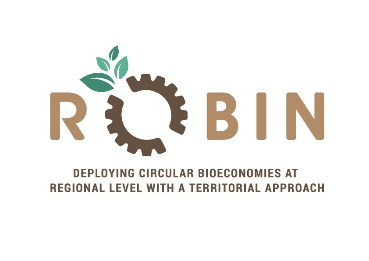On Tuesday the 25 of June, the Southern Regional Assembly and Munster Technological University (MTU) – the Irish partners in the ROBIN Project – co-hosted a workshop on a regional strategy for bioeconomy governance. The event was organised as part of the Project’s mission to develop the tools that would be deployed to develop a roadmap for the governance of the bioeconomy in the southern region.
We were joined for the event by 14 government, industry, academic and civil society bioeconomy stakeholders who contributed positively to our discussion and offered their expertise and experience of what a regional strategy for the bioeconomy should contain and the priority areas on which attention should be focussed. There was stakeholder representation from the Department of Agriculture, Food and Marine, Co-BioEcon, University College Dublin, Irish Bioeconomy Foundation, Tipperary County Council, Gas Networks Ireland, Future Energy Ireland and InformBio Teagasc
The workshop commenced with an overview of the ROBIN Project and an update on progress made to date by the Irish Project partners – Southern Regional Assembly and Munster Technologial University. This was followed by a report from the Southern Regional Assemblies Regional Planning Team which put the bioeconomy in the context of wider regional, national and European planning legislation and strategies, and detailed the ambitions for the bioeconomy in the southern region as Regional Planning Objectives (RPOs) contained in the Regional Spatial and Economic Strategy (RSES).
Attendees were then presented with the methodology applied by the ROBIN Project and the results that delivered examples of good practice in bioeconomy governance internationally, with case study examples that may be replicable in the Irish context. This led into our discussion on what a bioeconomy Regional Action Plan for the southern region should contain and what areas of priority our stakeholders considered should be included or strengthened. Given the diverse backgrounds of our bioeconomy stakeholders, this proved to be a very insightful and positive discussion.
This session was followed by our ROBIN Toolbox workshop, during which attendees were presented with firstly a high-level overview of the Toolbox and its component parts, which is intended to inform good practice into how a regional bioeconomy governance strategy will be created and deployed.
Following on from this, attendees worked in groups to examine elements of the Toolbox and provided very useful data which will be incorporated by the project partners into development and improvement of the Toolbox.

Pictured: ROBIN Stakeholders, Assembly House- Waterford on 25th June 2024


